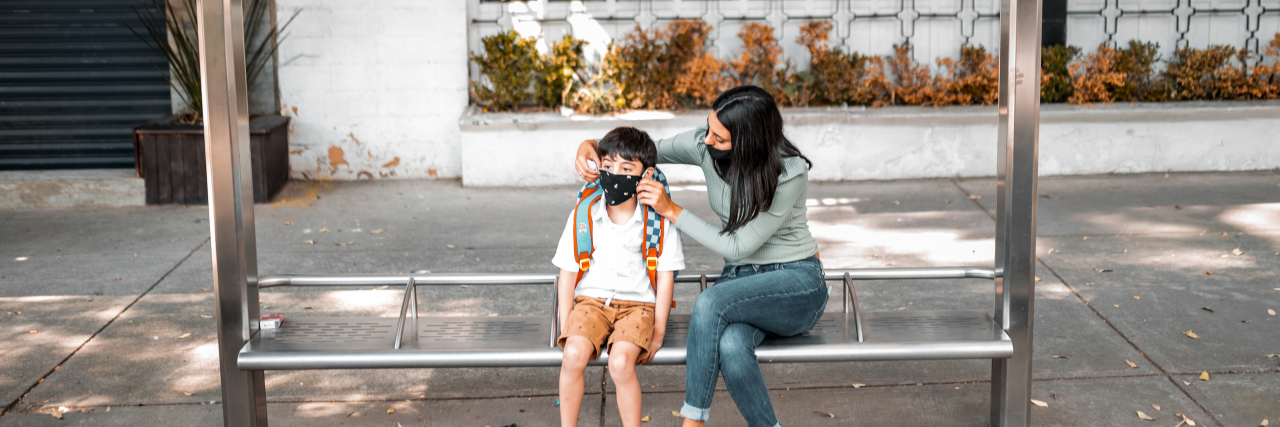March 13, 2020. It was Popcorn Friday at my kids’ elementary school. I stood in front of a well-used popcorn machine that morning with two other moms and filled countless small wax paper bags for the hundreds of students at our school. Eventually, we ran out of kernels, so I quickly drove to a local store for more. On my way to check out, I snagged a lone six-pack of toilet paper sitting on an end cap. I had heard about a toilet paper shortage and hadn’t had time to make my usual Costco run. I also knew that our upcoming Spring Break would be part of a “two weeks to flatten the curve” effort for something that was being called COVID-19, and I definitely did not want to run out while we hunkered down. I felt dutifully prepared and confident when I brought that six-pack of toilet paper home.
Two weeks has become almost three years and we have no verifiable end in sight. Toilet paper shortages have become the struggle to obtain at home or professional COVID tests so that we can return to school or work. In that time, we have lived through cultural, environmental, and global crises that have unrelentingly forced us to realize exactly how vulnerable we are. Of how precariously fragile our humanity is in the face of systemic realities, unravelings, and differing opinions. On a granular level, I have had similar experiences with my son. A complicated pregnancy culminated in a 37-week induction, which was followed by colic and struggles with feeding, sleeping, and babbling. By the time he was 2 years old, missed milestones led to a cascade of referrals, assessments, and therapies.
I accepted conventional wisdom that “earlier is better” when it came to early childhood interventions. Which it absolutely is. However, there is an implicit message that if you do all of the recommended strategies and therapies, not only will your child thrive and have the opportunity to eventually meet age-appropriate developmental goals, but you as a parent are good, strong, and admirable. Which you absolutely are. However, the moral value of being a good parent can become intertwined with your child’s trajectory. The difficulty becomes how to reconcile this internalized message when your child continues to struggle after years of therapies and diagnoses that keep piling up. When differences and challenges become more apparent as your child grows.
The most recent and comprehensive diagnosis my son received is that of autism. There have always been suspicions, but his “presentation” is “complex,” which is why we are just now arriving at this guidepost. My natural inclination when receiving a new diagnosis has always been to research and learn what my husband and I can do to support our son. I try to frame it through the lens of remembering he is a whole child, not a label, and then being intentional about my information consumption and resulting decisions. I have learned a great many things about various conditions and diagnoses over the last nine years, but nothing fully prepared me for the rabbit holes that are autism online support forums. Despite the stamina we’d built up, my husband and I were quickly inundated and overwhelmed with information, personal stories, and opinions. After a middle-of-the-night ED visit where suspicions of a heart attack were revealed to be a panic attack, a handful of trusted people circled their wagons around us in support. This afforded us the privileged ability to slow down, during which I became even more selective about what information I consumed.
I sought out trusted, reputable sources that aligned with my own values and beliefs based on what I know about my son and my experience of watching him stretch and grow, even during the hardest of times. I continually work to trust my instincts and discern what makes sense for him as his own person with his own individual needs within our family ecosystem. I have also come to realize just how much he has taught us, and continues to teach us, about the spectrum of what it means to be him. Of the commonalities to be found on the spectrum of being fellow humans. “Autism isn’t an illness. It’s a different way of being human,” Barry Prizant says in his book, “Uniquely Human.” “There is no such thing as autistic behavior. These are all human behaviors and human responses based on a person’s experience.”
What I am beginning to understand, both with the events of the last three years and what occurred following the autism diagnosis, is that after the shock and response of a crisis or new diagnosis passes, we are left with the task of redefining and reimagining our lives based on chronic uncertainty. When I look back at what has kept our family intact, even when we were forced to stand still for fear we would shatter, I see what Kate Bowler beautifully calls moments of small, “durable hope.” Moments that, when viewed in hindsight, make up a shining constellation that has lit our path through the hills, mountains, and valleys of our journey.
Most are about finding joy and comfort in both the happy and hard moments. Of intentionally engaging in the absurd and embracing Anne Lamott’s “radical silliness.” I think of the smile that arises when a beloved stuffed animal makes a surprise appearance in school pictures after a difficult transition to a new school. The playful voices of my children and their cousins as they make silly, nonsensical videos after evacuating to my brother’s house due to wildfires. The laughter and joyful squeals of our family while jumping on a slick, snow-covered trampoline after seven days without power during an ice storm. The solace and respite found in a friend’s embrace after the ED visit. Put together, this constellation of moments and memories has been enough, and has the capacity to continue being enough, to guide us through an uncertain past, present, and future. May it always be so.

